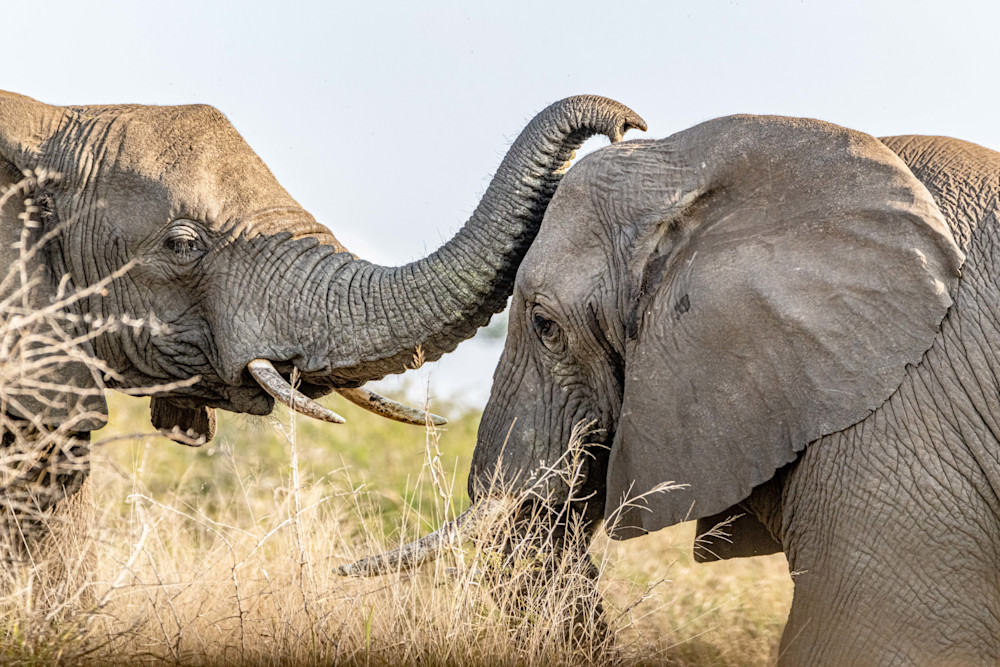The maternal bond between a mother elephant and her calf is a profound and heartwarming aspect of the animal kingdom. Elephants, known for their intelligence and strong social structures, exhibit deep emotions and nurturing behaviors, especially when it comes to the relationship between a mother and her calf.
Mother's Protection: Picture the vast savannah or dense forest where a mother elephant, with her imposing yet gentle presence, leads her adorable calf. The mother is watchful and protective, ensuring the safety of her offspring from potential threats in the wild.
Tender Moments: Despite their large size, elephants are remarkably tender with their young. The mother may use her trunk to gently guide and caress the calf, creating a tactile and affectionate connection. The calf, in turn, stays close to its mother, finding comfort and security in her presence.
Mimicking Behavior: As they traverse their natural habitat, the curious calf mimics its mother's movements and behaviors. It learns essential life skills by observing and imitating the actions of the experienced matriarch, forming a strong educational foundation for survival in the wild.
Communication: Communication between mother and calf is crucial. Elephants use a variety of vocalizations, body language, and infrasound (low-frequency sounds not audible to humans) to convey messages. The mother may emit soft rumbles and calls, reassuring the calf and maintaining contact in dense vegetation.
Shared Moments of Play: Elephant calves are known for their playful antics, and the mother often engages in joyful interactions with her offspring. Playful running, splashing in water, and mock battles contribute to the formation of a strong emotional bond between mother and calf.
Nurturing and Feeding: The mother elephant invests significant time and effort in caring for her calf. She provides nourishment through nursing, and the act of suckling creates an intimate connection between the two. The mother's milk is essential for the calf's growth and development.
Teaching Life Skills: As the calf grows, the mother imparts essential life skills, including foraging techniques, social behaviors within the herd, and awareness of potential dangers. These teachings are vital for the calf's eventual independence.
Herding Dynamics: The mother elephant is often part of a larger family or herd, and the extended family plays a role in the communal care of the young. Aunts, sisters, and other female elephants contribute to the upbringing of the calf, creating a supportive and nurturing environment.
Lifetime Bond: The bond between a mother elephant and her calf is enduring. Even as the calf grows into adolescence and adulthood, the emotional connection remains strong. Mothers and daughters may continue to share a close relationship within the intricate social structure of the elephant herd.
In the natural world, the love and care exhibited by a mother elephant toward her calf exemplify the complexity and depth of emotions found in these intelligent and majestic creatures. The maternal bond contributes to the resilience and social cohesion of elephant herds, making them a captivating and heartening aspect of the animal kingdom.
















